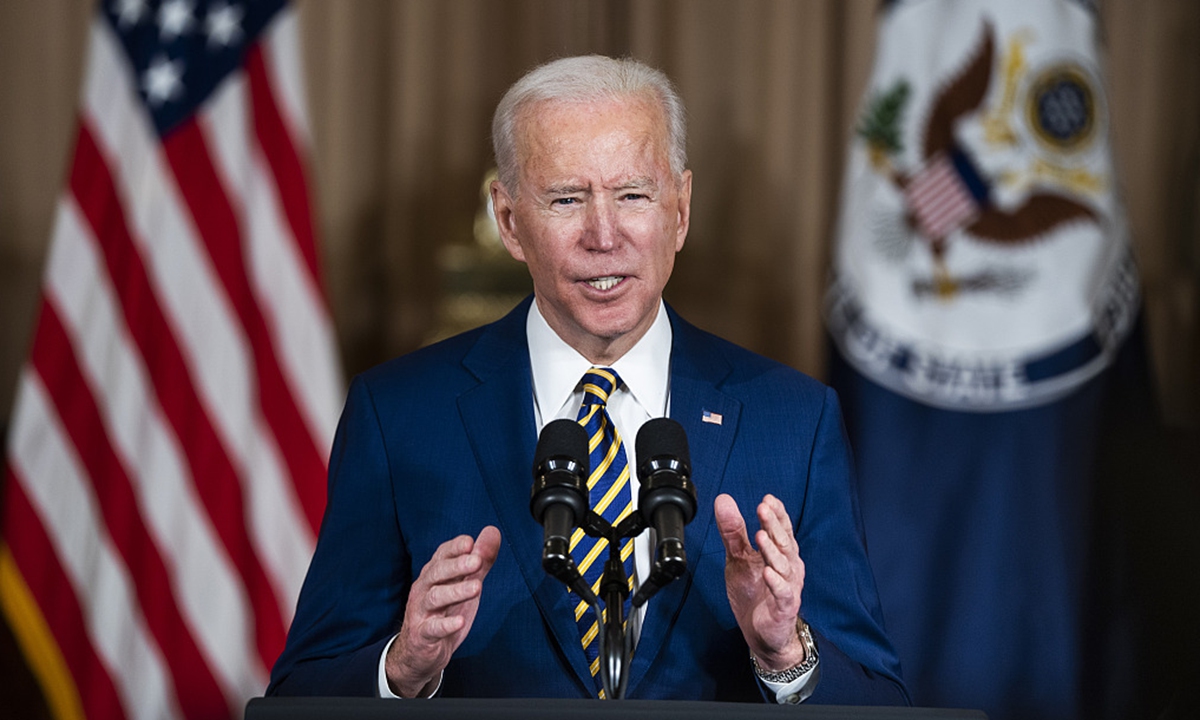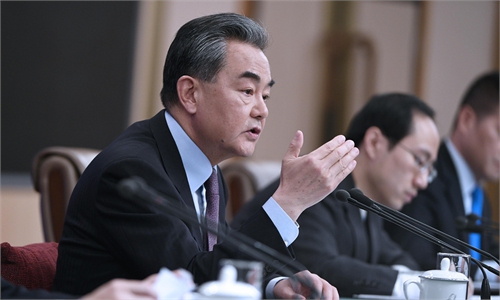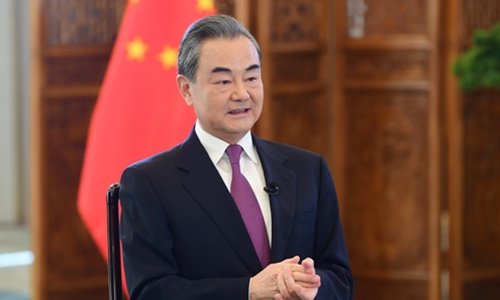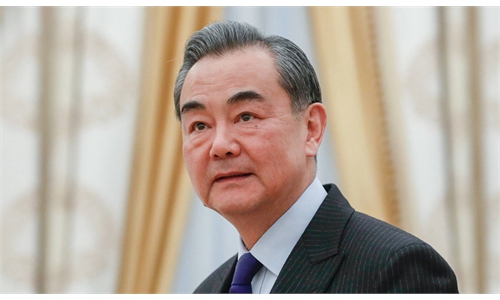
US President Joe Biden. Photo: VCG
Various crises in the US history during different periods have witnessed many great US presidents. But will the US see the rise of another great leader? This question looms large as the US is in its biggest crisis ever in the 21st century.Whether battling the COVID-19 pandemic, revitalizing the economy, or addressing climate change, the Biden administration will undoubtedly need cooperation with China to assure its achievements in these fields. But given the current situation, US President Joe Biden has his hands tied by domestic political pressure and other factors. It seems hard for him to make achievements on a par with those of his great predecessors.
Chinese State Councilor and Foreign Minister Wang Yi delivered a speech on Monday, putting forward recommendations of how to bring Chins-US relations back to the right track. However, in response, White House Press Secretary Jen Psaki said in a press briefing on the same day that the US believes "the relationship with China is one of strong competition." And US Department of State spokesperson Ned Price also said he thought China's appeals "reflect the continued pattern of Beijing's tendency to avert blame."
Such remarks by US officials continue the Biden administration's tough stances toward China since it was inaugurated. Except for moves such as reviewing former president Donald Trump's efforts to ban TikTok in the US, the Biden administration has rarely done anything substantial that helps to repair China-US relations in its first month. These are all indicators that Biden is restricted to implement China policies that are significantly different from those of previous government. Some of these restrictions stem from US domestic politics.
Due to its severe political divisions and social problems, the US is worried that if it doesn't act tough against China, Beijing will accelerate a rebalance of power with Washington. Currently, America's political left, right, and center are all advocating to be tough on China. The reason lies in Americans' deep-rooted and extreme prejudice and misunderstanding about China. This is a big problem in the China-US relationship.
According to a recent poll by Business Insider, 36 percent of respondents said Biden's policy toward China is weak or too weak, about 33 percent thought it is about right, while another 14 percent believed it is tough or too tough.
"The poll found a significant disparity in how the respondents answered the question based on their apparent political affiliation," the Insider reported. "Roughly 46 percent of respondents who said they were likely to vote in their state's Republican primary or caucus said that Biden's China policy is 'too weak.'"
Over the past few years, US irrationality against China has been rising. A very important reason for this trend was the Trump administration's constant stigmatization of China. This profoundly degraded the US' political narrative about China.
It is worrying that the Biden administration will not carefully review the mistakes made by previous government's China policy due to needs of US domestic politics, and the need to play up to anti-China sentiments among Americans. Even worse: current government may likely continue the "Trumpization" of US-China policies.
A study commissioned by the US-China Business Council released in January showed that Trump's trade war with China caused a peak loss of 245,000 US jobs. In addition, China's exports to the US helped lowered US commodity prices, improving people's livelihoods amid the epidemic.
Americans should understand this. However, if the Biden administration's China policy continues to be further kidnapped by US domestic anti-China sentiments, and if it keeps promoting decoupling with China, the result will damage the interests of both China and the US, harm globalization. In the end, it is Americans who will bear the most from these outcomes.
Graham Allison, the Douglas Dillon professor of government at Harvard University, and Fred Hu, founder and chairman of China-based Primavera Capital Group, published an article on February 18 in Foreign Affairs magazine which reviewed the China policies of former US presidents, including Richard Nixon and Ronald Reagan.
It mentioned Reagan words regarding US engagement with China at that time, "I'm an anti-Communist if you talk about Communism for the United States," he said, "[…] but I have never thought that it was necessary for us to impose our form of government on some other country." Reagan also noted the US and China could, "live at peace in the world together." The current US lacks such rational attitudes toward China.
The domestic problems the US confronts are far bigger than the international issues it cares about. We are expecting a rational, strategic and conscious US administration. Unfortunately, foreign policy is the continuation of domestic politics. If the internal situation in the US cannot change for the better and keeps being subjected to various factors, it will be difficult for the US President to realize any of his new ideas in diplomacy.
The author is a professor of international relations at Nanjing University. opinion@globaltimes.com.cn



